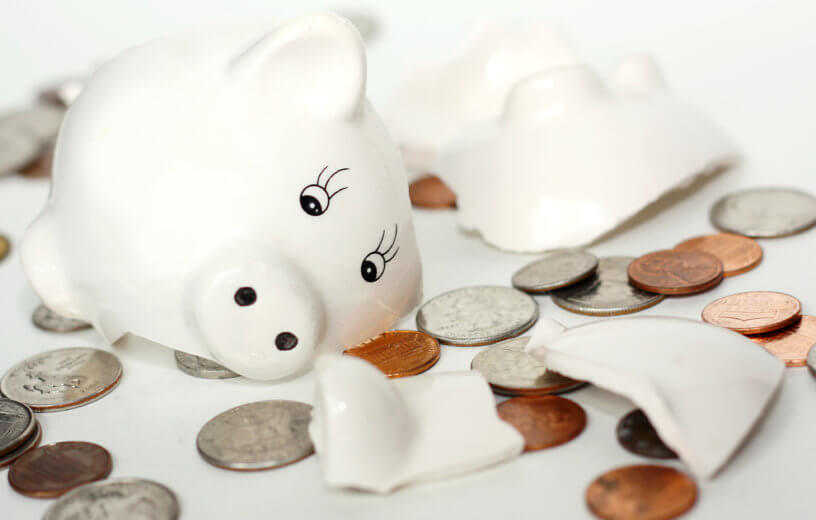EL SEGUNDO, Calif. — The U.S. economy is currently facing its toughest challenge since the Great Depression, and millions of Americans suddenly find themselves out of work. Financial experts have long advised people to build a savings account for emergencies, but it’s fairly safe to say that no one saw a widespread economic emergency of this scale coming. We’re all scrambling to adapt, but a new survey is illustrating just how bad the situation is for many Americans.
A total of 1,100 Americans were polled, and one in four (25%) said they don’t have any emergency savings at all. Another 23% only have enough to get by for three weeks. While there is some help on the way in the form of $1,200 government stimulus checks, 42% said they’ll have to immediately spend that money on bare essentials like groceries.
The survey, commissioned by GOBankingRates, also came to a number of other financial findings. Perhaps one of the most eye-opening is the revelation that two-thirds of Americans have either already been financial burdened by the coronavirus crisis (36%) or expect to be soon (28%).
The majority of respondents also indicated that they do not support bailouts for big business. Slightly under 60% said the government should not help big businesses during this pandemic.
Circling back to those stimulus checks, some respondents said they would use that money to start an emergency fund (16%) or use it to mitigate lost work wages (14%). Others plan on taking a more selfless approach by sending their stimulus money to friends or family (5%) or supporting a local business (7%). A small percentage (4%) plan to invest in the stock market.
All in all, 75% of respondents are worried about their short-term financial needs and stability.
While 60% of respondents don’t support bailing out big businesses, men seemed to be more open to the idea of helping large corporations than women. A total of 55% of men said they wouldn’t support a big bailout plan, but 64% of women said the same.
When asked about emergency savings, less than 14% of respondents said they have enough to get by for a full year, and less than 15% have enough for three to six months. On a sobering note, about half of all respondents said they couldn’t even pay a month’s worth of expenses with their emergency funds.
Another repercussion of the coronavirus is the sudden importance of remote work. Unfortunately, only 25% of respondents said they are currently working remotely. Another 3% could work from home but aren’t being allowed to by their employer, and 39% can’t work remotely.
What about paid sick leave? Nearly six in 10 respondents can’t take paid sick leave at all, and another 6% can but have already used up all their sick days.
